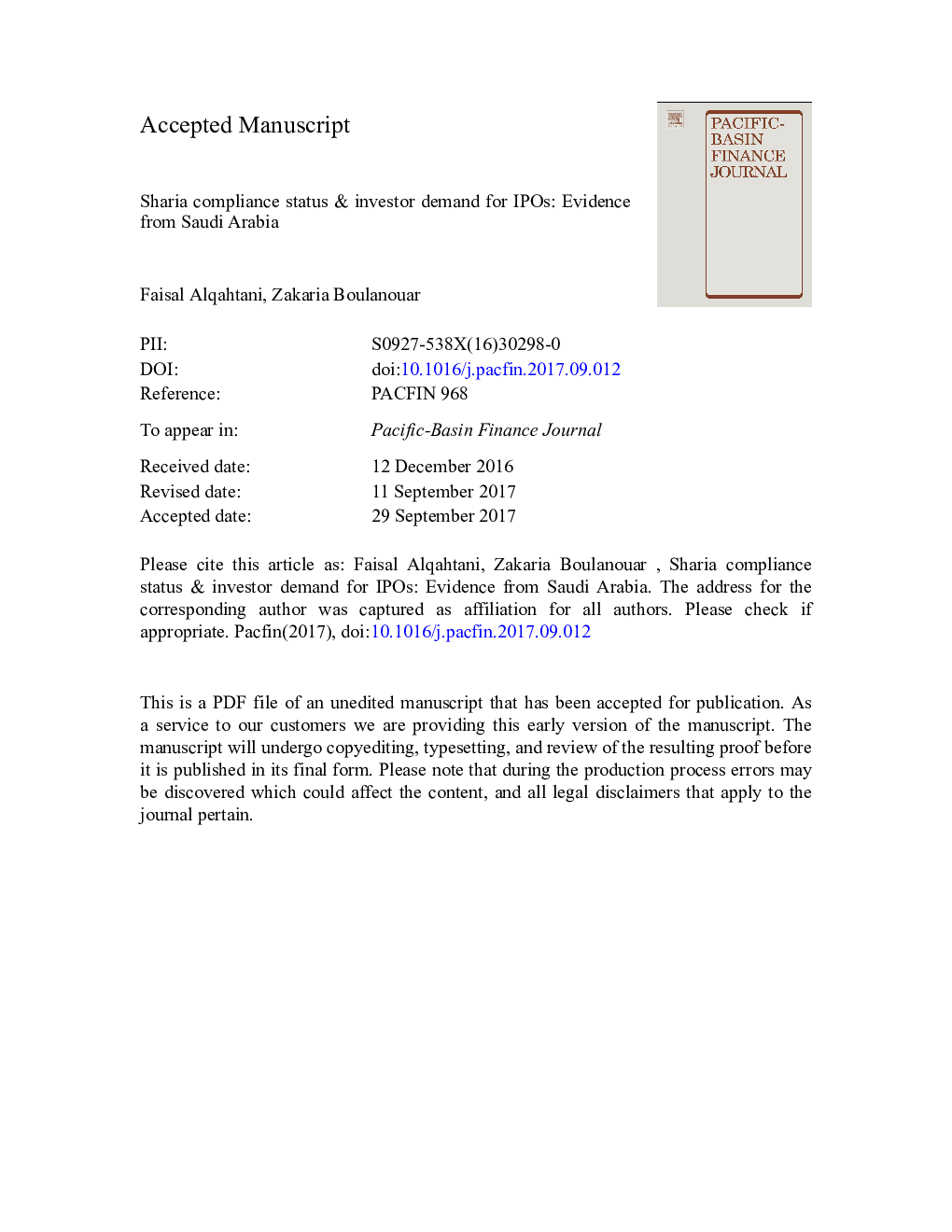| Article ID | Journal | Published Year | Pages | File Type |
|---|---|---|---|---|
| 7374281 | Pacific-Basin Finance Journal | 2017 | 32 Pages |
Abstract
Using a sample of 80 IPOs in the Saudi Arabian market between 2004 and 2011, in this paper we empirically investigate the effect of sharia compliance status on investor (individuals and institutions) demand for new shares offered in initial public offerings (IPOs). After controlling for some pre-listing information including size, age of the firm, offer risk, offer price, block-holding, market condition and the effect of the Global Financial Crisis (GFC), we find that Sharia compliance status significantly alters the demand for new issues when measured by two different proxies, the ratio of oversubscription and the number of subscribers. We also find that market condition and block-holding, offer risk, age and size of firms can significantly explain some of the variations in the demand. Pivotally, institutional investors were found to emphasize profit-maximization over considerations of Sharia-compliance, whereas for individual investors (the majority here) the opposite was true. We conclude that sharia compliance status should be taken into account by issuers with a greater emphasis on privatization IPOs where the government aim is to distribute wealth among its citizens.
Keywords
Related Topics
Social Sciences and Humanities
Economics, Econometrics and Finance
Economics and Econometrics
Authors
Faisal Alqahtani, Zakaria Boulanouar,
